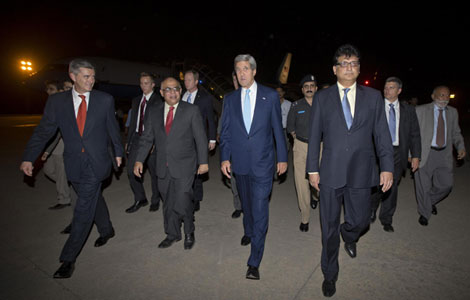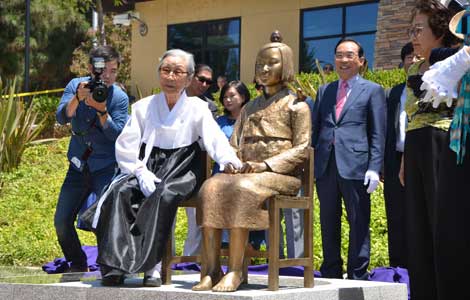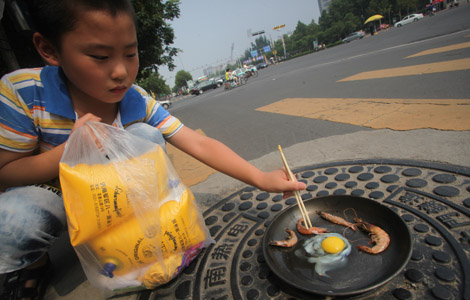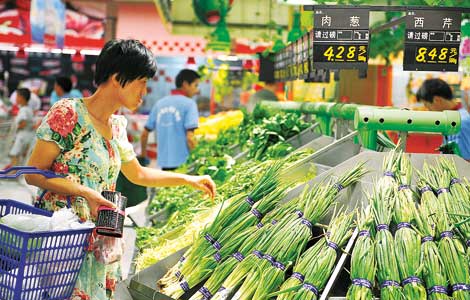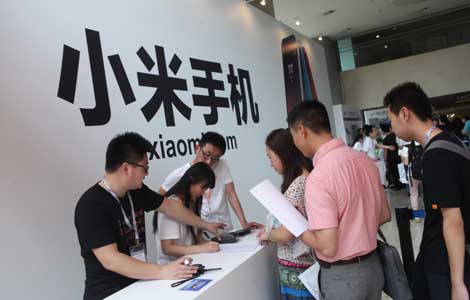Common sense can be a yardstick
Updated: 2013-08-01 07:45
By Zhu Yuan (China Daily)
|
||||||||
With only six years of primary school education, 70-year-old Chang Desheng, as Party secretary of a small village in East China's Jiangsu province, knew even in the early 1980s that agricultural production could never be abandoned however rich his village became and was also aware that polluting factories were not acceptable however profitable they might be.
His village, Jiangxiang, with per capita annual GDP of more than $20,000 in past decade, does not have to buy grain and vegetables and has all its sewage and solid waste treated before being discharged.
Traveling around the 3-square-kilometer village and witnessing with my own eyes the tidy two-story houses for every family, the zigzagging waterways with clean water and the green fields with birds of different kinds singing nearby, I couldn't help thinking how such an ordinary village Party secretary could have embraced sustainable development even in the 1980s when the country was still in the early stage of its economic reform and opening-up.
After I had talked with Chang, it dawned on me that doing everything according to common sense has been the secret of his success in leading his village on a sustainable path to prosperity.
I may be criticized for making a fuss about the importance of common sense, but it is not always easy to do things in accordance with common sense, particularly when it comes to the management of a business or administration of a locality.
Often it is not because the people in charge do not have any common sense, but because immediate interests or some other factors have got the better of them.
For example, any local leader should know how devastating pollution of any kind will be to the local environment, but still a number of local governments have chosen the revenues from polluting industries rather than a clean environment. That explains why most of the country's rivers are heavily polluted and even the rice produced in some parts of southern China has been contaminated by heavy metals.
It is common sense that the renovation of urban roads or pavements will cause a lot of inconvenience to residents and such works should be completed as quickly as possible. And if such work is necessary, it should be done at night or during holidays to cause as little disruption as possible to normal traffic flows. But it is far too often that such renovations take place simply for the sake of renovation.
This is because by doing such repairs the relevant government department in charge will be able to get direct benefit or the officials in charge will get kickbacks from the team who gets the job. It is the corruption that gets the better of the officials.
When looking at things that common sense says should not have been done, they bring to mind the recipe of Party General Secretary Xi Jinping for good governance. Xi said that the governing of a country should be like cooking a delicious dish; meaning the right ingredients in the right amount should be used and only when every detail is done right will the dish come out tasting delicious. It also means that care must be taken with every step, as a slip could ruin the dish.
This is common sense.
Likewise with local leaders. First they need to have the intention of following the recipe. That is common sense. That is why there is an intensified fight against corruption to get rid of the factors that divert the attention of some leaders away from common sense.
Seeing whether a locality does things according to common sense may be an effective way to identify where abuses of power exist.
The author is a senior writer with China Daily. zhuyuan@chinadaily.com.cn
(China Daily USA 08/01/2013 page11)
Most Viewed
Editor's Picks

|

|

|

|

|

|
Today's Top News
7.5% GDP growth 'in reach' this year
Surveillance plan files declassified
Xi vows to protect maritime interests
Snowden's father thankful to Putin
UN to probe alleged Syria chemical attacks
Saudi blogger faces lashes for 'insulting Islam'
Memorial a tribute to WWII 'comfort women'
Hollywood unpaid for movies
US Weekly

|

|
